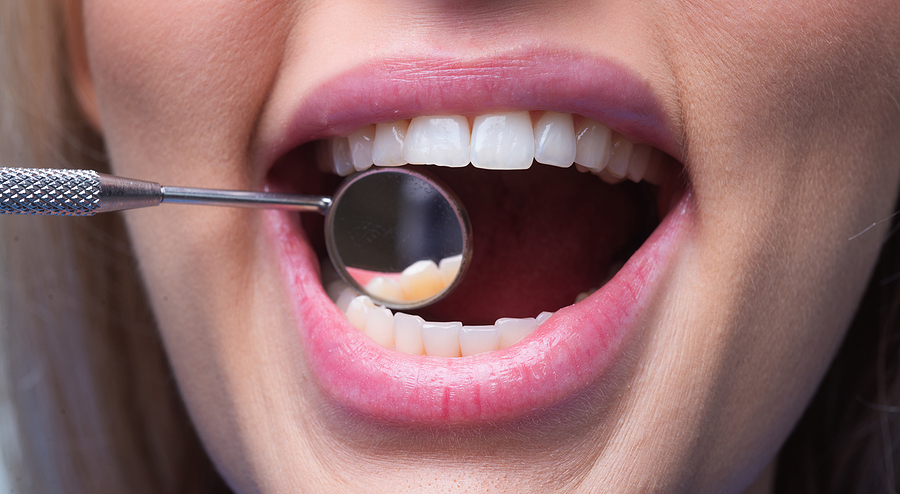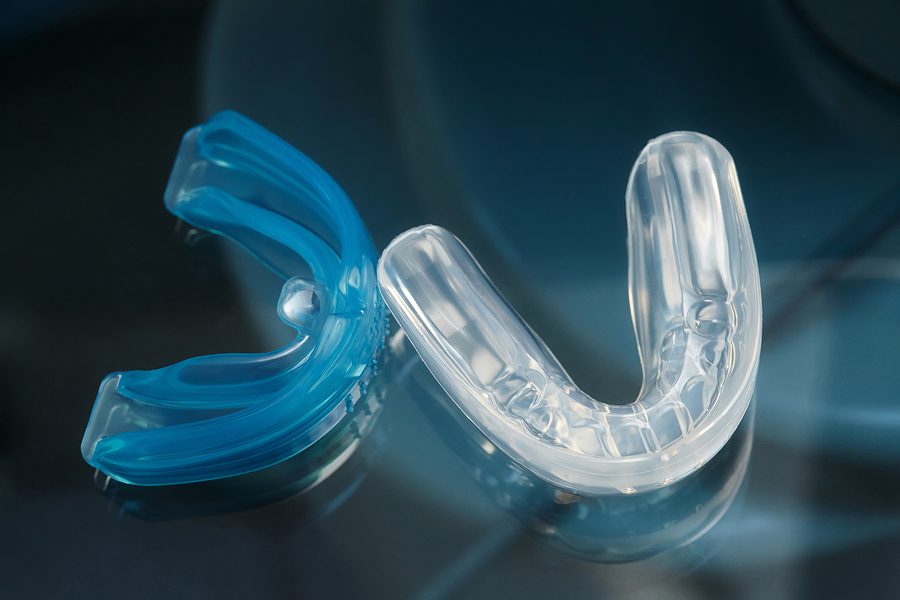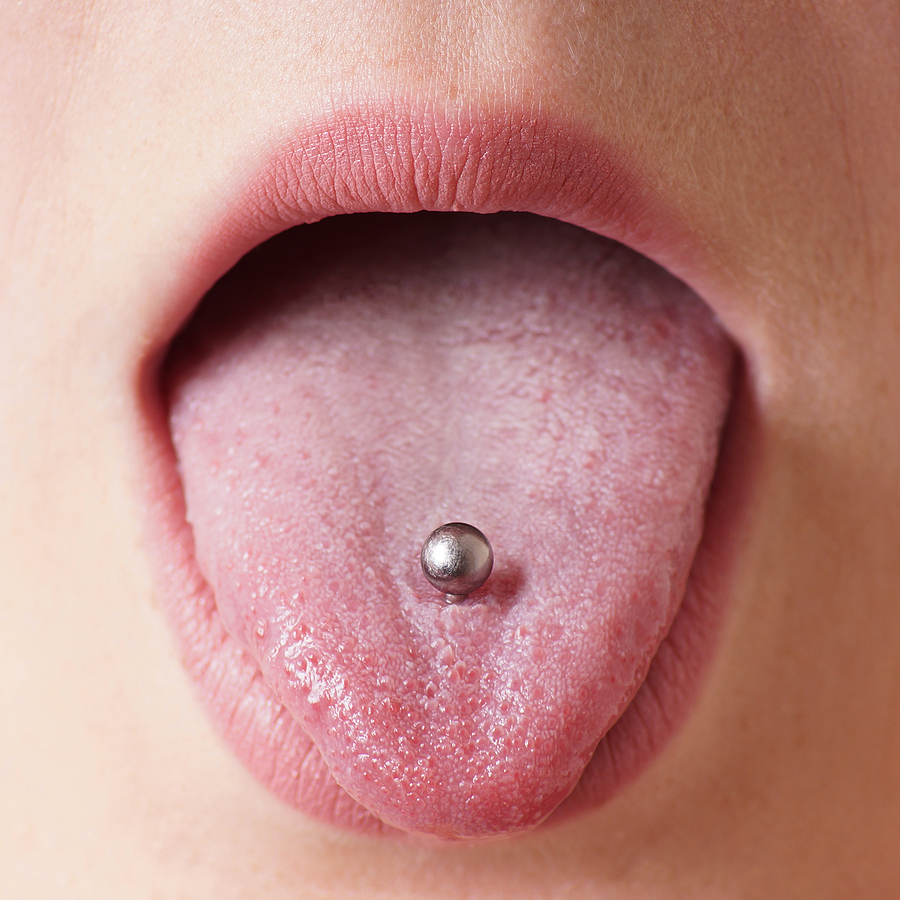Considered a popular form of self-expression, oral piercings such as tongue bolts, cheek studs, and lip rings have become quite popular among many young people these days. Some people think these bodily adornments are appealing, while others consider them repulsive; everything is a matter of personal taste. However, whichever side of the fashion divide you're on, various researches have proven that they can be hazardous to your health.
As per the Journal of the American Dental Association, the most common sites for intraoral piercings are the tongue and lips. The piercings are likely to contact teeth, gum tissue, and other anatomical structures in the mouth that contain millions of bacteria in both locations. And that's where the trouble may start.
What are oral piercings?
Oral piercings are the piercings of the tongue, cheek, lips, or uvula, which is created using a needle. Piercing your tongue, lips, or cheek involves higher health risks than piercing your ears, and hence, it is important to seek advice from your dentist before having any part of your mouth pierced.
What are the possible risks involved with oral piercings?
Piercing tongue, lips, cheeks, or uvula can interfere with speech, chewing, or swallowing. It may also cause the following conditions:
- Infection, pain, and swelling:Our mouths are home to millions of breeding bacteria, and hence, an ideal place for infection after an oral piercing. Touching the jewelry once it has been placed in the mouth also increases the risks of getting an infection. The piercing can also cause your tongue to swell, potentially blocking your airway and restrict breathing.
- Damage to gums, teeth, and fillings: Biting or playing with the oral piercing can injure gums and cause cracked, scratched, or sensitive teeth. Piercings can also damage teeth restorations and fillings. The metal piercing can injure soft gum tissue and can cause the gums to recede, leaving your tooth root more prone to decay and periodontal disease.
- Hypersensitivity to metals: For people sensitive to metals, allergic reactions can occur at the pierced site.
- Nerve damage: After a tongue piercing, you may experience a numb tongue. This occurs as a result of nerve damage that is usually temporary but can sometimes be permanent. In addition to the numbness, the injured nerve may affect your sense of taste or the movement of your tongue. Damage to your tongue's blood vessels can cause blood loss too.
- Bleeding: If the needle penetrates a blood vessel during piercing, it can lead to prolonged bleeding and severe blood loss.
- Dental appointment difficulties: The metal piercings can get in the way of dental care by blocking X-rays.
- Interference with normal oral function: The jewelry in the mouth can cause increased saliva production that leads to excessive drooling, hinder your ability to pronounce words properly, and cause problems with oral functions like chewing and swallowing.
- Blood-borne diseases:According to the National Institutes of Health, oral piercings have been identified as a possible factor in transmitting hepatitis B, C, D, and G.
- Endocarditis: Oral piercing can lead to an inflammation of the heart valves or tissues; the condition is called endocarditis. The wound created during the piercing provides a way for oral bacteria to enter the bloodstream and heart.
How to take care if you already have piercings?
The best option to consider if you already have oral piercings is to remove them before a problem arises. However, if you wish to keep them, ensure that you take care of the following things:
- If you doubt any signs of infection, contact your dentist or physician immediately.
- Keep the site clean and neat by using a mouth rinse after every meal.
- Do not click the jewelry against your teeth. Be gentle and aware of the jewelry's movement when talking and chewing; avoid any stress on the piercing.
- Ensure that the jewelry is properly tight. This can help prevent you from swallowing or choking if the jewelry becomes dislodged.
- It is advised to remove the piercing and protect the mouth with a mouthguard while taking part in sports.
- Maintain proper oral hygiene habits - brush twice a day and floss daily. Also, never skip your biannual dental appointments.
When should I get the help of a healthcare provider?
Watch out for signs of infection - redness, swelling, lots of bleeding, discharge, bad smell, rash, and fever. If you experience any of these issues or feel that something is not right, visit a dentist or healthcare provider immediately.
At Complete Dental Health LLC, Albany, we educate our patients on healthy dental habits to protect their teeth and gums. However, if you already have an oral piercing that has caused damage or concern within your smile, our team of expert dentists will handle it with excellence. Call now to book your appointment.
Share On

Do Dental Implants Feel Like Real Teeth? What You Need to Know
Are you considering dental implants in Albany, OR? If so, you're not alone. Many people are turning to …

The Impact of Dental Implants on Jawbone Health & Facial Structure
Are you looking for a solution to missing teeth that goes beyond mere aesthetics? Dental implants might be …

Why Cosmetic Dentistry Isn’t Just About Looks: Functional Benefits Explained
Cosmetic dentistry in Albany, OR, is often seen as a luxury reserved for those wanting to enhance their …

Oral Appliances: A Versatile Solution for Dental and Sleep Health
Oral appliances are versatile tools that address various dental and medical conditions, from teeth grinding to sleep apnea. …

The Importance of Periodontal Therapy in Maintaining Healthy Gums
When it comes to our oral health, we often focus on brushing and flossing, but there’s another crucial …
